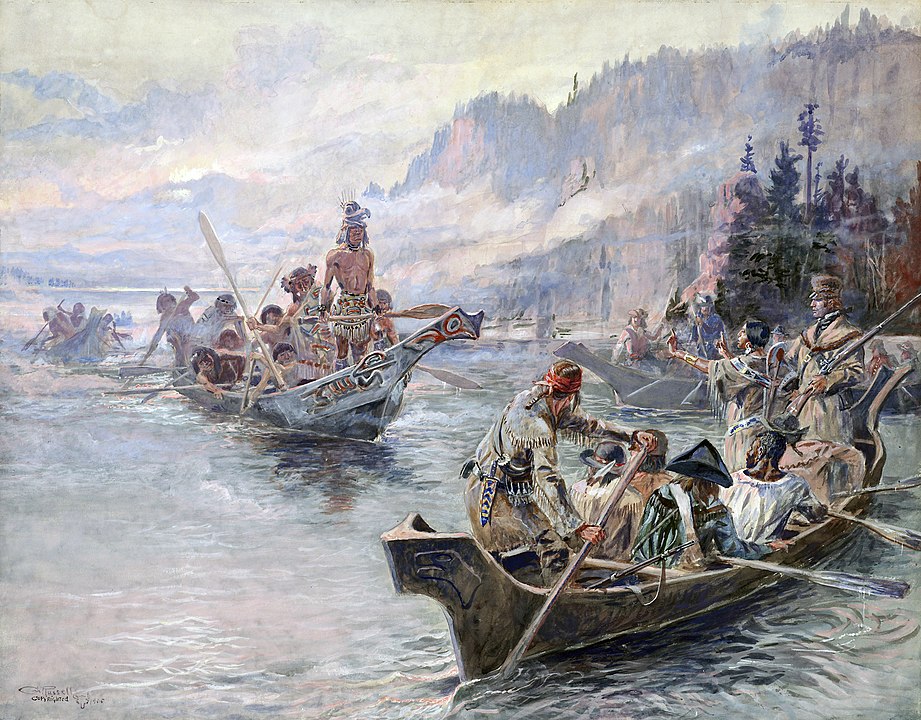
Lewis and Clark on the Lower Colombia by Charles Marion Russell, 1905. Amon Carter Museum of American Art, Fort Worth, Texas, Amon G. Carter Collection
How to register:
We offer two field trip scheduling options:
- Select a field trip from the Museum’s public event schedule
- Request to schedule a field trip at a time that meets your group’s schedule
Audience:
All audiences. Content appropriate for Grades 6-12.
Goal: Learn about the Army’s first diplomatic mission and its lasting consequences for the Army, the nation, and American Indians.
Program description:
Virtual Field Trips connect students to the Museum all without leaving their desks. During this field trip, students will engage with the Army’s history through artifacts, primary sources, and Soldiers’ Stories.
The Corps of Discovery was the Army’s first diplomatic mission. Meriwether Lewis and William Clark received orders from President Thomas Jefferson to explore the newly acquired Louisiana Territory and find a water passageway to the Pacific Ocean. In this virtual field trip, examine primary sources to learn more about the crew, American Indian culture, and the natural landscape. Discover the mission’s lasting impacts and consequences for the Army, the nation, and the American Indians who inhabited the land.
Objective: At the end of this lesson students, will be able to
- Describe how the Lewis and Clark Expedition carried out its mission.
- Identify aspects of the American Indian culture in the Louisiana Territory.
- List the scientific contributions of the Lewis and Clark Expedition.
- Summarize the lasting consequences of the Corps of Discovery.
Guiding Questions:
What was the impact of the Lewis and Clark expedition?
How can the effects of the Lewis and Clark expedition be seen today?
Curriculum Connections
Common Core Standards
- CCSS.ELA-LITERACY.RH.6-8.2
Determine the central ideas or information of a primary or secondary source; provide an accurate summary of the source distinct from prior knowledge or opinions.
History and Social Science Standards of Learning for Virginia Public Schools
-
United States History to 1865
-
USI.8 The student will apply history and social science skills to explain westward expansion and reform in America from 1801 to 1861
- A) by describing how territorial expansion affected the political map of the United States, including, but not limited to the Louisiana Purchase, the Lewis and Clark expedition and the role of Sacagawea, the acquisitions of Florida, Texas, Oregon, and California, and the results of the Mexican American War;
-
USI.8 The student will apply history and social science skills to explain westward expansion and reform in America from 1801 to 1861
-
Virginia and United States History
-
VUS.7 The student will apply history and social science skills to analyze major events in Virginia and United States history during the first half of the 19th century by
- e) describing the political results of territorial expansion and its impact on Indigenous peoples;
-
VUS.7 The student will apply history and social science skills to analyze major events in Virginia and United States history during the first half of the 19th century by
Your message has been submitted.
